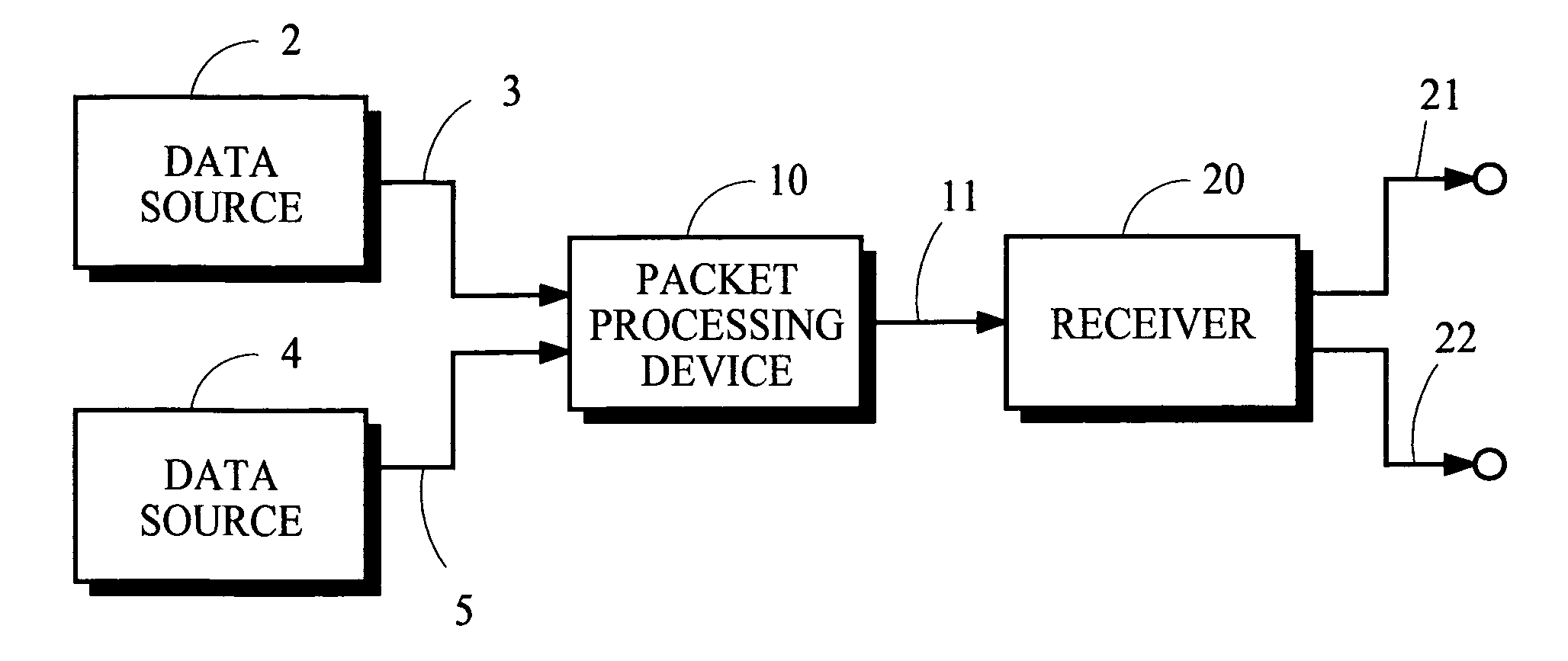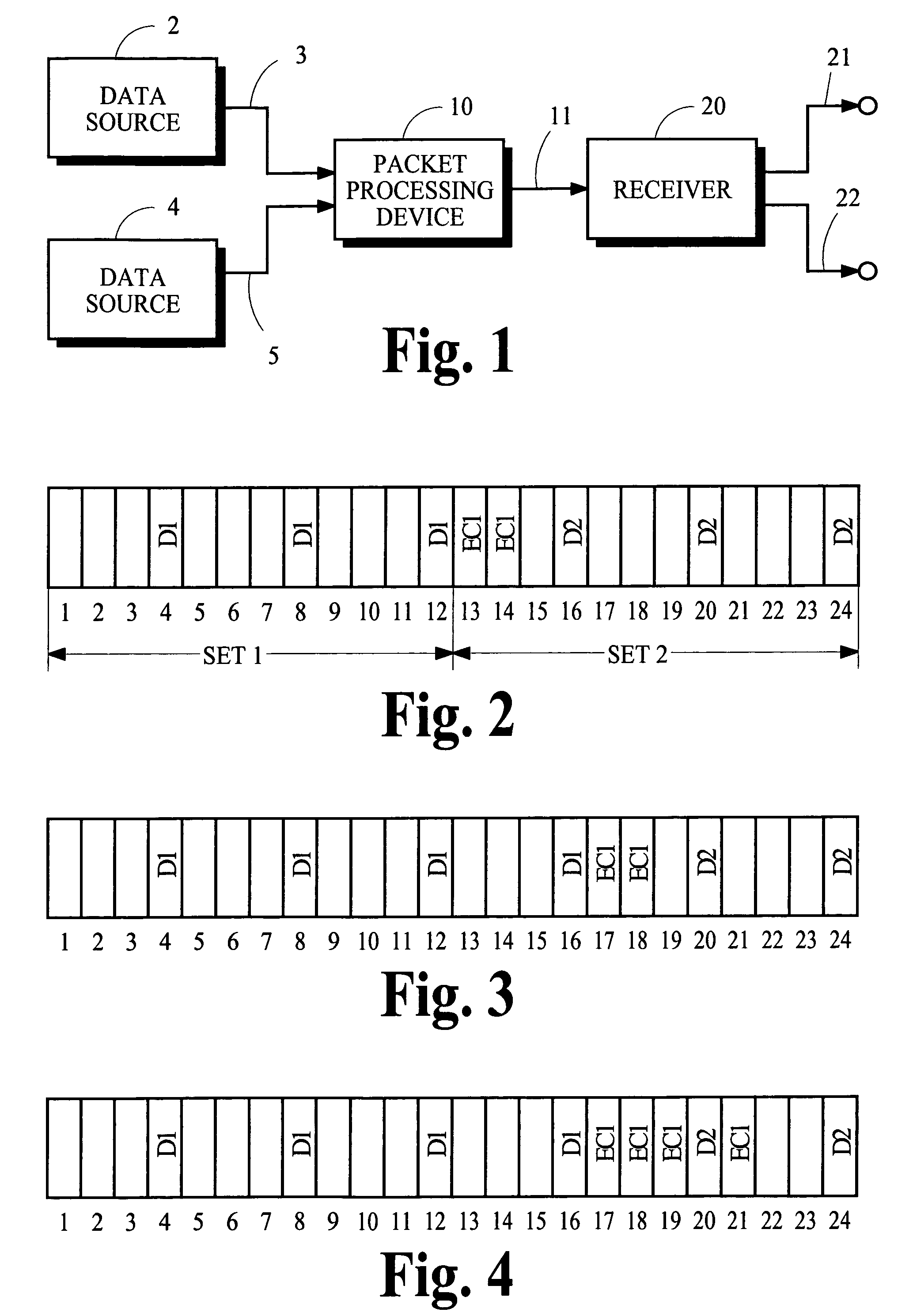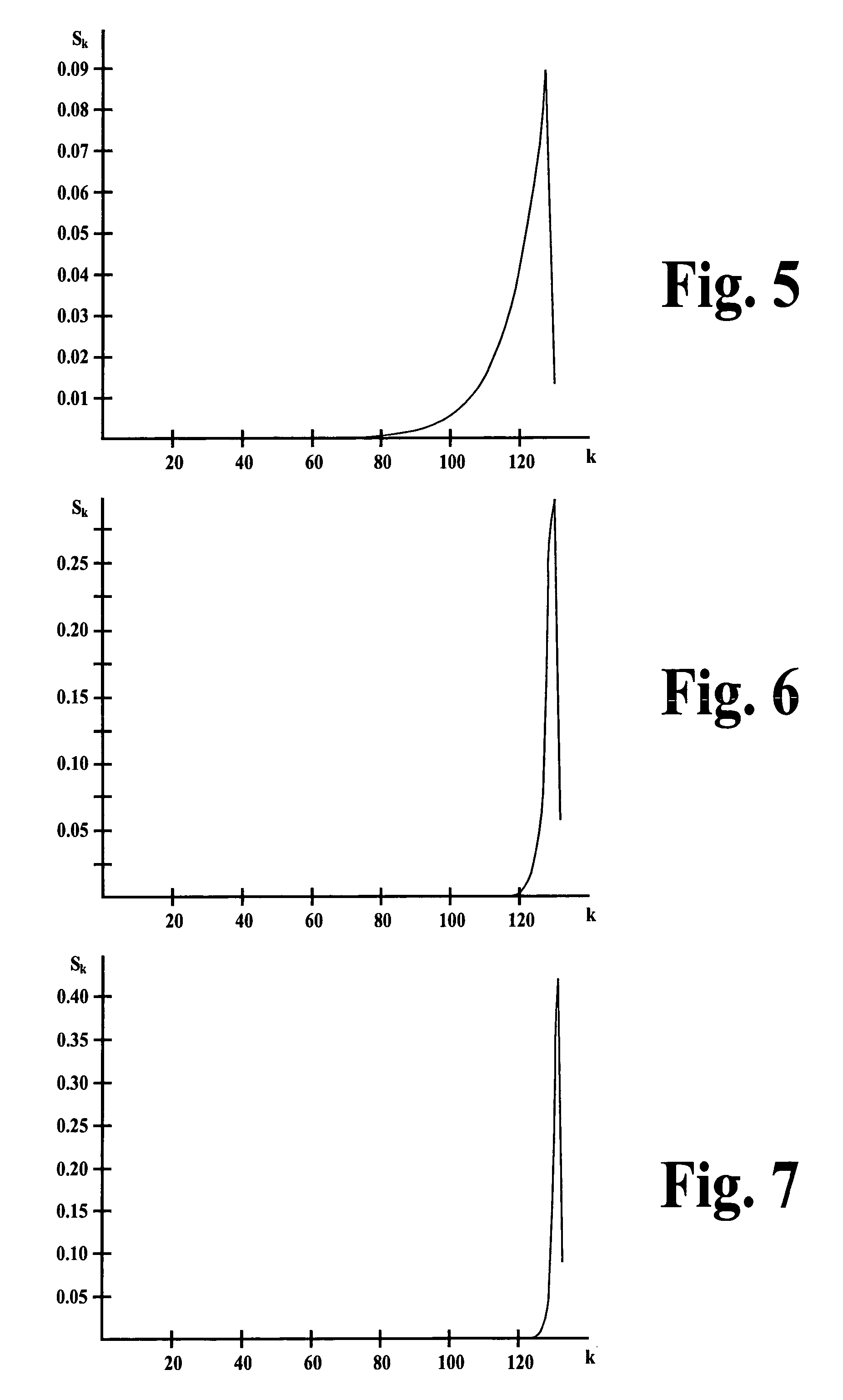Method and system for optimizing forward error correction of multimedia streaming over wireless networks
a wireless network and multimedia technology, applied in the field of forward error correction of multimedia streaming over wireless networks, can solve the problems of packet loss, packet loss including missing packets, processing devices may not be able to transmit packets, etc., to achieve the effect of minimizing the effects of packet loss
- Summary
- Abstract
- Description
- Claims
- Application Information
AI Technical Summary
Benefits of technology
Problems solved by technology
Method used
Image
Examples
Embodiment Construction
A. Introduction
1. Communication System
[0017]FIG. 1 is a schematic illustration of a communication system in which one or more data sources 2, 4 provide source signals that convey information arranged in packets. The information carried in at least some of the packets may be multimedia information, for example. The source signal provided by the data source 2 conveys information arranged in sets of packets referred to as “primary packets” because the servicing of these packets is the subject of the present invention. The sets of primary packets include primary data packets and primary error-correction (EC) packets. A set includes a number k of primary data packets and a number (n−k) of primary EC packets, for a total of n primary packets in the set. Other data sources such as the data source 4 also provide source signals conveying information arranged in packets referred to as “competing packets” because these latter packets compete for resources needed to service the primary packets;...
PUM
 Login to View More
Login to View More Abstract
Description
Claims
Application Information
 Login to View More
Login to View More - R&D
- Intellectual Property
- Life Sciences
- Materials
- Tech Scout
- Unparalleled Data Quality
- Higher Quality Content
- 60% Fewer Hallucinations
Browse by: Latest US Patents, China's latest patents, Technical Efficacy Thesaurus, Application Domain, Technology Topic, Popular Technical Reports.
© 2025 PatSnap. All rights reserved.Legal|Privacy policy|Modern Slavery Act Transparency Statement|Sitemap|About US| Contact US: help@patsnap.com



